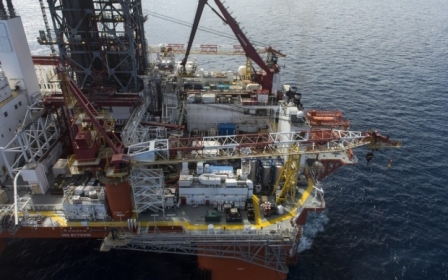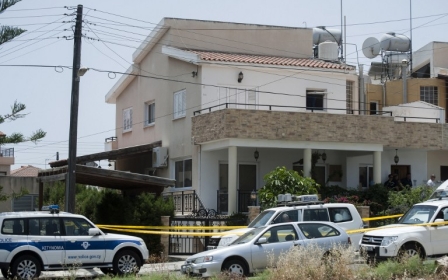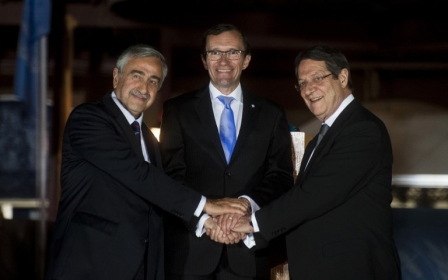Cyprus reunification could revive Turkey’s EU bid

The divided island of Cyprus is often considered one of the major hurdles in Turkey’s path toward joining the European Union, but the newfound optimism that surrounds the latest round of reunification negotiations could potentially provide a much-needed boost for Turkey’s bid to join the bloc - if it ends in success.
As ties between Turkey and Greece - both major backers of the opposing sides on the divided island - have drastically improved, and with both those countries increasingly caught up in their own troubles, there is little appetite left on the part of Greek and Turkish Cypriots to engage in a game of brinksmanship to try to eke out a more favourable deal.
According to Mensur Akgun, a professor and chair of the international relations department at Istanbul Kultur University, there is no doubt that Turkey’s path to the EU will be made smoother with a deal on Cyprus but he is also keen to point out that this doesn’t necessarily mean guaranteed EU membership for Turkey.
“Undoubtedly Turkey stands to gain from a resolution of the Cyprus dispute and I personally know how much [Turkish] Prime Minister [Ahmet] Davutoglu has been pushing the Turkish side to agree to a compromise formula,” Akgun told Middle East Eye.
The election of presidents keen to achieve reunification on both sides of the island has provided a big boost to negotiations. Nicos Anastasiades and Mustafa Akinci have met at least seven times since the latter’s election to office in April; and in a symbolic move with high economic significance for the island, both sides submitted a joint appeal to the European Commission in July to have the local cheese Halloumi, or Hellim, receive protected designation of origin status.
For Emre Gonen, an academic at Bilgi University in Istanbul, Cypriot reunification would aid Turkey’s EU bid but he warns that despite negotiations on the island being promising there lies a long road ahead.
“It will take more than goodwill and hope to see the reunification of the island. Negotiations are going well and for the first time perhaps since 1963, there is a genuine will on both communities of the island to establish a common Modus Vivendi, based on political equality,” Gonen told MEE.
He added: “It is important also to consider that if Cyprus is united, it will be within the form of a federation and Turkish Cypriots will become part of the EU. Therefore there will be for the first time in the EU a country, half of it at least, that genuinely supports the Turkish bid.”
Turkey officially began accession talks with the EU in 2005 but many of the 35 acquis chapters that need to be agreed remain blocked; many by the Republic of Cyprus, the internationally recognized part of the island, as a result of Turkey’s 1974 invasion of the island and its refusal to recognise the Greek side.
Turkish troops occupied the northern part of the island in 1974 in response to a Greek-inspired coup that sought to unite the island with mainland Greece and to protect Turkish Cypriots caught up in a civil war with their Greek Cypriot counterparts. The occupation meant only the Republic of Cyprus was recognised internationally with Turkey being the sole country recognising the Turkish Republic of Northern Cyprus.
Turkey has been adamant in its refusal to recognise the Republic of Cyprus and open its ports to Nicosia, particularly when just the southern part of the island was accepted into the EU in 2004 despite voting no in a referendum to unite the island.
“The eight chapters blocked by Cyprus and other chapters that remain indirectly blocked due to Cyprus will be opened if there is reunification but we also shouldn’t forget that this on its own does not mean automatic entry to the EU for Turkey,” said Akgun.
According to Gonen, “The [2004 Annan] plan to reunify the island was clearly accepted on the Turkish side and clearly rejected on the Greek side, but the Greek administration was granted an access ticket to the EU as a reward. This has created a very deep mistrust among Turks and Turkish Cypriots vis-à-vis the EU and the whole international law and negotiation system.”
The Annan plan, named after UN Secretary General of the time Kofi Annan, was a comprehensive plan for the future of a reunified Cyprus that also encompassed incremental demilitarisation on the island.
Economic and political dimensions
Over the past few years, an increasing number of Turks, and as a result the Turkish government, saw their desire to join the bloc wane given that the Turkish economy seemed to be performing far better than crisis-ridden Europe and a feeling that Europe did not actually want to allow Muslim-majority Turkey into the club.
But a stagnant economy and Turkey’s increasing involvement in the conflicts of the Middle East is making EU membership an attractive option again. Recent surveys by Eurobarometer, polls conducted by the European Commission, for instance show Turks now have an improved opinion of the EU, which could lead to a desire to reinvigorate the stuttering EU bid.
It is vital to make a distinction between the economic and political aspects of the issue, according to Akgun, who says, “Yes, given that 50 percent of Turkey’s trade is with the EU, membership in the bloc is economically important and beneficial for Turkey but the situation in the Middle East will remain the same irrespective of whether Turkey is an EU member or not.”
“What could change is that Turkey will be inspired to come up with new formulas on how to deal with issues plaguing the Middle East if it enters another honeymoon period with the EU,” he added.
Backlash
The removal of the Greek Cypriot impediment could result in renewed interest on the part of the Turkish government to restart its process of democratic reforms and shift away from its growing authoritarian tendencies at home in order to get closer to achieving its goal of becoming an EU member state.
Akgun sounds a cautionary note in this regard and says the sincerity shown by major European players will be crucial. “Although such things are difficult to predict, there is every likelihood that the removal of the Cyprus obstacle could lead to a revival and acceleration of domestic democratisation reforms, human rights reforms and also have implications for future Turkish foreign policy positions but we shouldn’t forget that the possibility of a backlash exists as well,” he said.
“If for instance Germany or France continue to find other excuses to block Turkey’s EU negotiation process, the backlash would be in the form of a complete lack of trust on part of Turkish public opinion when it comes to the EU’s ideals and principles,” said Akgun and added, “If a perfectly functioning relationship can be developed between EU members and Turkey, everything will be easier of course since in addition to the military protection it derives from NATO membership it will also become part of the EU political entity.”
Gonen agrees that the actions of the EU will be significant since major distrust toward the bloc already exists due to its actions in the past.
“Turkey’s EU negotiations entered into a deep crisis in June 2006, just a few months after having started. First Greek Cyprus and then [Nicolas] Sarkozy’s France played a very nasty game during the entire period. So the Turkish government and public opinion have been fed up with the double-standard approach in Turkey-EU relations,” said Gonen.
While thorny issues - such as property rights and the fate of migrants who moved from mainland Turkey post 1974 - mean there are sure to be a few stumbling blocks on the road to the reunification of Cyprus, a success story will not only come as a huge relief to the islanders but also for Turkey, the EU and other global institutions given the scarcity of political success stories in the region these days.
New MEE newsletter: Jerusalem Dispatch
Sign up to get the latest insights and analysis on Israel-Palestine, alongside Turkey Unpacked and other MEE newsletters
Middle East Eye delivers independent and unrivalled coverage and analysis of the Middle East, North Africa and beyond. To learn more about republishing this content and the associated fees, please fill out this form. More about MEE can be found here.




